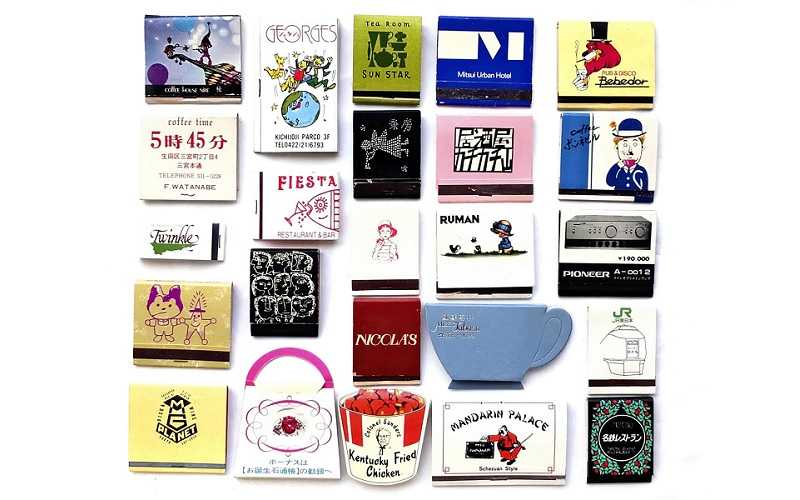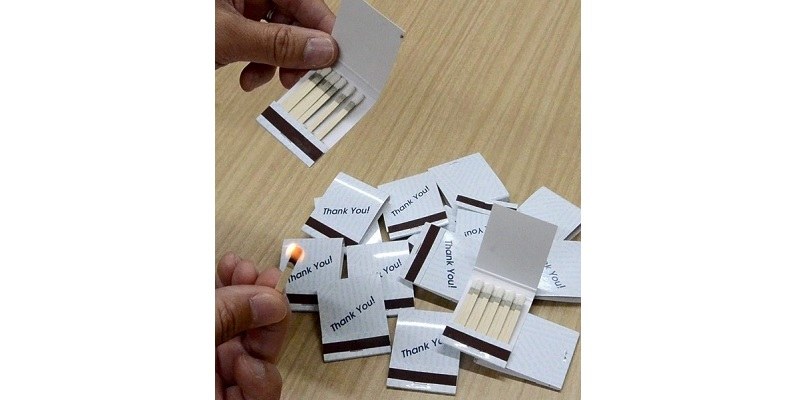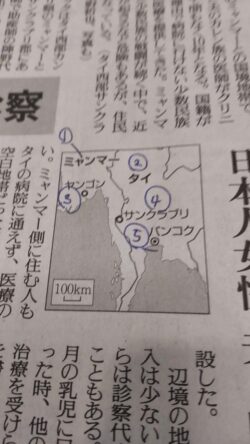Matchbook lights out as Nittosha to stop manufacturing

Colorful matchbooks with unique designs
13:00 JST, August 2, 2022
KOBE — The nation’s only manufacturer of matchbooks in Himeji, Hyogo Prefecture, will cease production operations in the near future after fulfilling all remaining orders.
Matchbooks were widely used for advertising during the Showa era (1926-89) and Heisei era (1989-2019). As smoking bans increase and advertising media diversifies, the firm decided to discontinue the matchbook after over half a century.
A matchbook, consisting of base paper folded in half with matches inside, originated in the United States. The 1950s saw matchbook production begin in a large scale in Japan. Either side of the base could be printed on, and they were convenient to carry around. Businesses would often use them for advertising, and they would be given out by restaurants and hotels.

Matchbooks used as an advertising item with text and designs on a folded paper at Nittosha Co. in Himeji, Hyogo Prefecture
Nittosha entered the matchbook manufacturing business in 1973. Although the firm was a latecomer to the market, demand for advertising was high. “We received orders for custom made books from a wide range of customers, from local coffee shops to national chain stores,” Nittosha’s plant manager Kenji Kobayashi said.
Records of domestic production of matchbooks began in 1977. Since then, the highest recorded production volume was 11,423 match tons in 1982, according to the the Japan Match Industrial Association in Kobe and other organizations. One match ton is equivalent to 300,000 to 400,000 matchsticks.
With the spread of ¥100 disposable lighters and pocket tissues with advertisements, production volume dropped to just 25 match tons last year.
“When I was a company worker, a matchbook from popular discos was considered a status symbol. Advertising appears ever more ubiquitous on the web. Matchbooks have finished their role as advertisements,” said Takahiro Ono, 60, who runs Tarumi match museum in Kobe.
"Society" POPULAR ARTICLE
JN ACCESS RANKING







